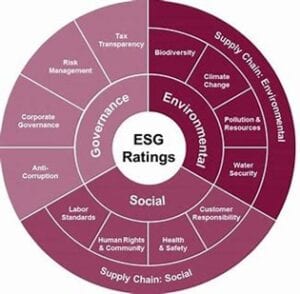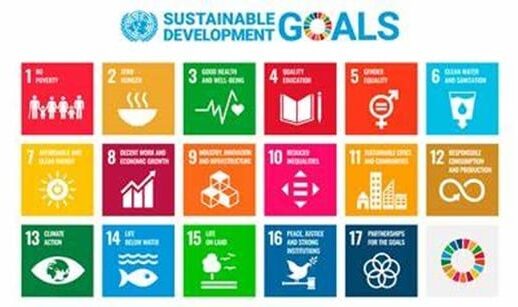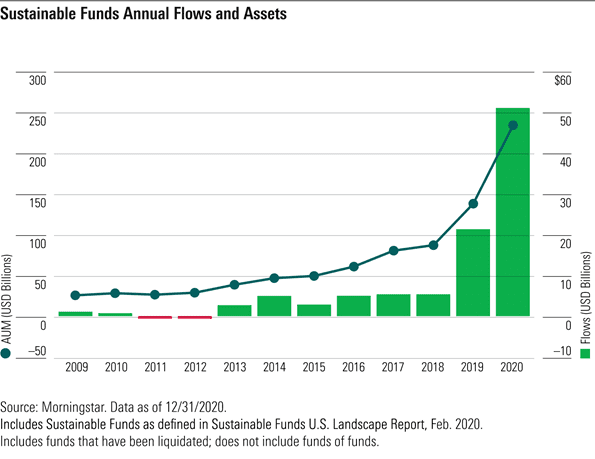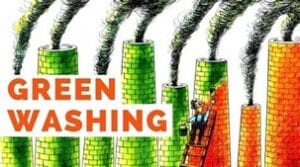By Lisa Peterson, PhD, PE, GRCA Team of Expert for Sustainability Consulting
 Planet, People and Profit
Planet, People and Profit
Confused about the word sustainability?
People often think that sustainability is only about the environment or ecological health. But if we only focus on the planet and do not maintain focus on people and profit, true long-term sustainability is not likely. When something is sustainable, it means it can be maintained at a certain rate or level. According to Investopedia, “Sustainability focuses on meeting the needs of the present without compromising the ability of future generations to meet their needs.”
The Triple Bottom Line
 The concept of sustainability includes three pillars – namely the environment, society and the economy. It is also known as the “3Ps” which stands for Planet, People and Profit. Maintaining a focus and balance on these three pillars is referred to as the triple bottom line, meaning that to be truly sustainable, we need to be judicious in our use of natural resources, meet the needs of society and remain economically viable.
The concept of sustainability includes three pillars – namely the environment, society and the economy. It is also known as the “3Ps” which stands for Planet, People and Profit. Maintaining a focus and balance on these three pillars is referred to as the triple bottom line, meaning that to be truly sustainable, we need to be judicious in our use of natural resources, meet the needs of society and remain economically viable.
ESG and SDGs
 On a nearly daily basis, there is some headline in the news about a company’s Environmental, Social and Governance (ESG) Ratings, their initiatives toward the 17 United Nations Sustainable Development Goals (SDGs), or their corporate commitment to sustainability. According to the Governance and Accountability Institute, more than 90% of the companies in the S&P500 published corporate sustainability reports as of January 2020 with that statistic growing year by year. On Jan. 28, 2021 Morningstar reported that sustainable mutual funds in the US continued to attract record flows from investors in 2020, exceeding flows of $50 billion and assets under management at about $240 billion. As shown in the graph, this flow into sustainable funds is on an exponential trajectory over the last three years.
On a nearly daily basis, there is some headline in the news about a company’s Environmental, Social and Governance (ESG) Ratings, their initiatives toward the 17 United Nations Sustainable Development Goals (SDGs), or their corporate commitment to sustainability. According to the Governance and Accountability Institute, more than 90% of the companies in the S&P500 published corporate sustainability reports as of January 2020 with that statistic growing year by year. On Jan. 28, 2021 Morningstar reported that sustainable mutual funds in the US continued to attract record flows from investors in 2020, exceeding flows of $50 billion and assets under management at about $240 billion. As shown in the graph, this flow into sustainable funds is on an exponential trajectory over the last three years.


Why are companies doing this?
Companies are doing this because their customers are demanding it, or their investors are demanding it.
First, let us start with the investors.
- An ever-growing population of investors are specifically establishing their portfolios with sustainability expectations. For example, the individual investor may instruct their financial advisor to select a fund that demonstrates financial growth, ensures no child labor in the supply chain, and maintains sustainable forestry practice. As the fund manager was doing their due diligence, they included each company’s stock in that fund because of the evidence they presented in their filed sustainability reports.
- An ever-growing population of banks are viewing a commitment to sustainability to lower risk and improve financial outcomes. For example, when a company seeks a loan, the bank will want to ensure that the company will be sustainable so that the loan can be paid back.
Now let us consider customers.
- As more and more companies are reporting on sustainability, they are holding their suppliers accountable to also document their initiatives and commitments toward sustainability.
- The growing population of sustainability minded individual consumers are making purchasing decisions based on their perceptions of a company’s sustainability initiatives and commitments.
In other words, investors, customers and companies are coming to the realization that sustainability does not come at the expense of business profit, but rather is the wise strategy for long-term viability because it includes business profit. It is a substantial change in thinking and is occurring right now.
How can you benefit?
By considering sustainability in your business, you will be able to:
- Build factual data to tell your story, which can become a formal report.
- Have answers for your customers who want to know how you are supporting the planet while meeting their needs in society and remaining financially viable.
- Include sustainability in your advertising so that customers can easily find this information and direct their purchasing dollars your way.
Words of caution
 As you are telling your story, be careful about “greenwashing.” Greenwashing is a term used when companies convey a false impression or provide misleading information about their environmental initiatives. Be careful to avoid this practice since negative publicity can result.
As you are telling your story, be careful about “greenwashing.” Greenwashing is a term used when companies convey a false impression or provide misleading information about their environmental initiatives. Be careful to avoid this practice since negative publicity can result.
Specifically focusing on the environmental aspect of sustainability, it is important to know that the environmental pillar of sustainability is not only about climate change. Climate change is one of the midpoint impact indicators that can be assessed for a product, service or operation. Other environmental midpoint impact indicators include acidification, ecotoxicity, eutrophication, human health impacts, ozone depletion and smog formation to name a few.
Are you seeking to:
- answer customer questions about sustainability,
- drive down cost in your operation while being socially and environmentally responsible,
- quantify the impact of a product or service,
- prepare a sustainability report,
- comply to an international standard, like ISO 14001,
- prepare an Environmental Social and Governance (ESG) report,
- identify appropriate Sustainable Development Goals (SDGs) to include in your operational metrics, or
- set a sustainability target?
As the Sustainability Expert on GRCA’s Team of Experts, I bring decades of first-hand experience driving sustainability and making it a part of the every-day culture. I am eager to help companies more efficiently use natural resources, meet their stakeholder needs, reduce cost and therefore become more sustainable. Aftan Engineering will help you stand out from the crowd, tell your sustainability story, and leverage the benefits!
All GRCA members have access to the Team of Experts. Request a free 30-minute consultation with either Lisa Peterson or another expert.
If you are interested in joining the GRCA Team of Experts, please contact Julie Larison, Director of Member Services at jlarison@greaterreading.org.


 Planet, People and Profit
Planet, People and Profit